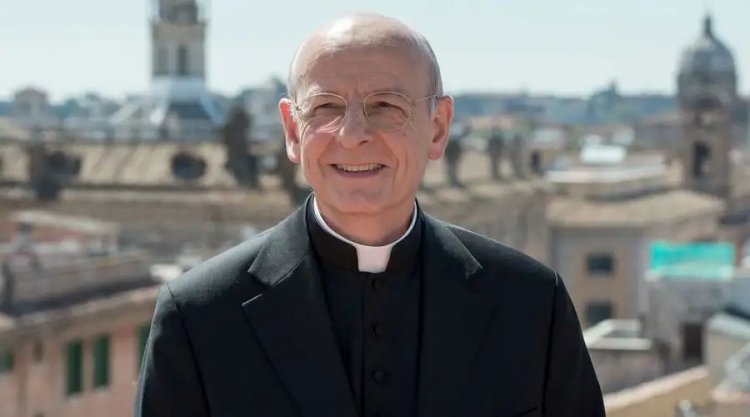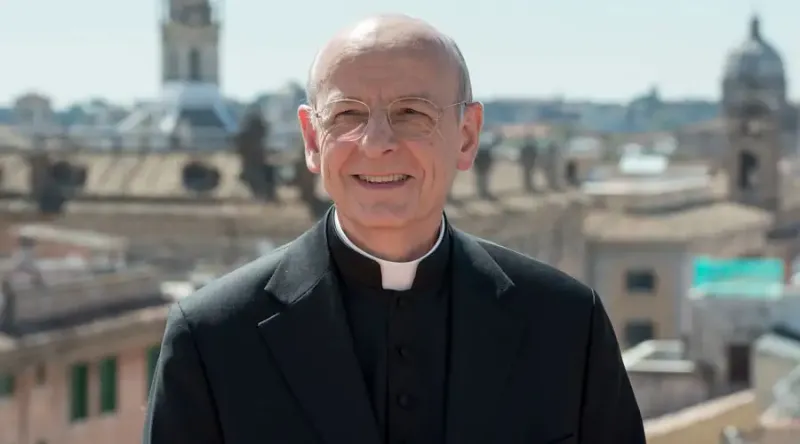Opus Dei’s prelate asks for prayers for reform ordered by Pope Francis
Msgr. Fernando Ocáriz / Photo credit: Flickr Opus Dei Communications Office Denver Newsroom, Sep 12, 2022 / 16:00 pm (CNA). The prelate of Opus Dei, Msgr. Fernando Ocáriz, has asked the members of the Catholic institution for their prayers for the reform process ordered by Pope Francis, which took effect Aug. 4.“Continue to pray for the work that the pope has entrusted to us to adapt the Statutes of the Work to what is indicated in the motu proprio ‘Ad charisma tuendum,’” the prelate said in a message published Sept. 10.“We have already started — in the General Council and the Central Advisory — the appropriate studies to carry it out,” he said.“During the days spent in the Holy Land, I have kept you especially present in my prayer, knowing that I am accompanied by yours at the same time,” Ocáriz wrote.What did Pope Francis order for Opus Dei?On July 22, the Vatican published the apostolic letter in the form of a motu proprio titled “Ad charisma tuendum” (To safeguard the charism), whereby Pope Francis ordered a reform of Opus Dei.Among the pope’s provisions are that the prelate who directs Opus Dei from now on will no longer be a bishop; the institution must adapt its statutes and present an annual report; and it will no longer answer to the dicastery for bishops but to the dicastery for the clergy.Opus Dei explained that the decision that the prelate may no longer be a bishop is “an initiative and decision of the Holy See” to reinforce “the charismatic dimension” instead of the hierarchical dimension of the institution.Ocáriz, 77, is not a bishop and, due to the pontifical document, will not be consecrated as such.In a question-and-answer section of Opus Dei’s website in Spain, it states that this does not “directly introduce changes in the form of government of the prelature, nor in the relations of the prelature’s authorities with the bishops,” which means that it will continue to function as before.By establishing that an annual report must be presented on the situation of the prelature and the development of its apostolic work, the previous regulation that required it every five years has been changed.The pontifical document also requires the adjustment of the statutes, which must be proposed by Opus Dei itself and must then be approved by the competent Vatican bodies.What is Opus Dei?Opus Dei is a personal prelature, the only one in the Catholic Church. It was founded in Spain by St. Josemaría Escrivá de Balaguer in 1928 and is present in 68 countries.The overall head of the prelature is the prelate, who is appointed by the pope and who governs the institution as a jurisdiction, similar to a bishop who governs his diocese or assigned territory.Opus Dei means “Work of God” in Latin, which is why its members usually refer to it as “The Work.” Its special emphasis or charism is sanctification through daily work.In Opus Dei there are priests, celibate lay persons who are called numeraries and associates, and supernumeraries who are married members.Opus Dei is not a sect.This story was first published by ACI Prensa, CNA’s Spanish-language news partner. It has been translated and adapted by CNA.

 Msgr. Fernando Ocáriz / Photo credit: Flickr Opus Dei Communications Office
Msgr. Fernando Ocáriz / Photo credit: Flickr Opus Dei Communications Office
Denver Newsroom, Sep 12, 2022 / 16:00 pm (CNA).
The prelate of Opus Dei, Msgr. Fernando Ocáriz, has asked the members of the Catholic institution for their prayers for the reform process ordered by Pope Francis, which took effect Aug. 4.
“Continue to pray for the work that the pope has entrusted to us to adapt the Statutes of the Work to what is indicated in the motu proprio ‘Ad charisma tuendum,’” the prelate said in a message published Sept. 10.
“We have already started — in the General Council and the Central Advisory — the appropriate studies to carry it out,” he said.
“During the days spent in the Holy Land, I have kept you especially present in my prayer, knowing that I am accompanied by yours at the same time,” Ocáriz wrote.
What did Pope Francis order for Opus Dei?
On July 22, the Vatican published the apostolic letter in the form of a motu proprio titled “Ad charisma tuendum” (To safeguard the charism), whereby Pope Francis ordered a reform of Opus Dei.
Among the pope’s provisions are that the prelate who directs Opus Dei from now on will no longer be a bishop; the institution must adapt its statutes and present an annual report; and it will no longer answer to the dicastery for bishops but to the dicastery for the clergy.
Opus Dei explained that the decision that the prelate may no longer be a bishop is “an initiative and decision of the Holy See” to reinforce “the charismatic dimension” instead of the hierarchical dimension of the institution.
Ocáriz, 77, is not a bishop and, due to the pontifical document, will not be consecrated as such.
In a question-and-answer section of Opus Dei’s website in Spain, it states that this does not “directly introduce changes in the form of government of the prelature, nor in the relations of the prelature’s authorities with the bishops,” which means that it will continue to function as before.
By establishing that an annual report must be presented on the situation of the prelature and the development of its apostolic work, the previous regulation that required it every five years has been changed.
The pontifical document also requires the adjustment of the statutes, which must be proposed by Opus Dei itself and must then be approved by the competent Vatican bodies.
What is Opus Dei?
Opus Dei is a personal prelature, the only one in the Catholic Church. It was founded in Spain by St. Josemaría Escrivá de Balaguer in 1928 and is present in 68 countries.
The overall head of the prelature is the prelate, who is appointed by the pope and who governs the institution as a jurisdiction, similar to a bishop who governs his diocese or assigned territory.
Opus Dei means “Work of God” in Latin, which is why its members usually refer to it as “The Work.” Its special emphasis or charism is sanctification through daily work.
In Opus Dei there are priests, celibate lay persons who are called numeraries and associates, and supernumeraries who are married members.
Opus Dei is not a sect.
This story was first published by ACI Prensa, CNA’s Spanish-language news partner. It has been translated and adapted by CNA.














